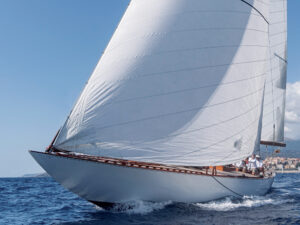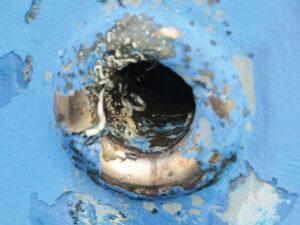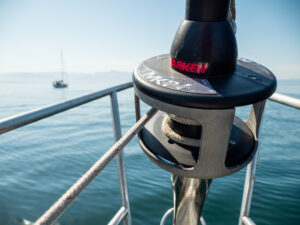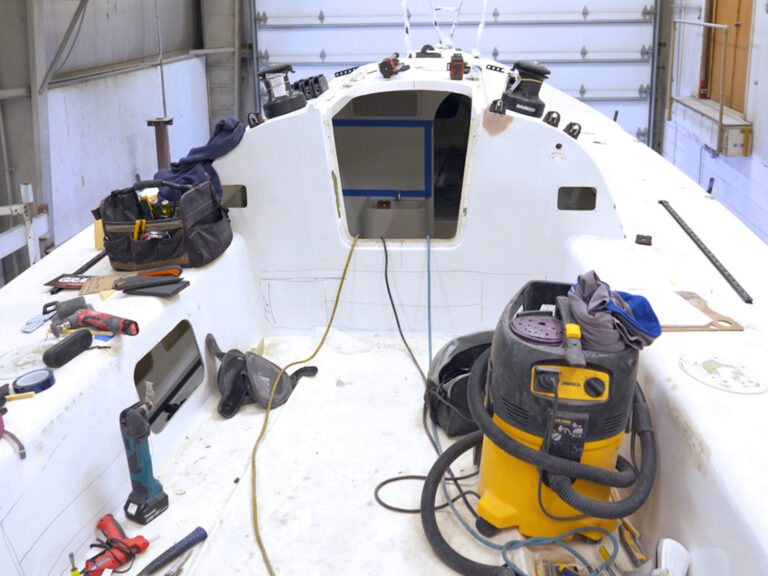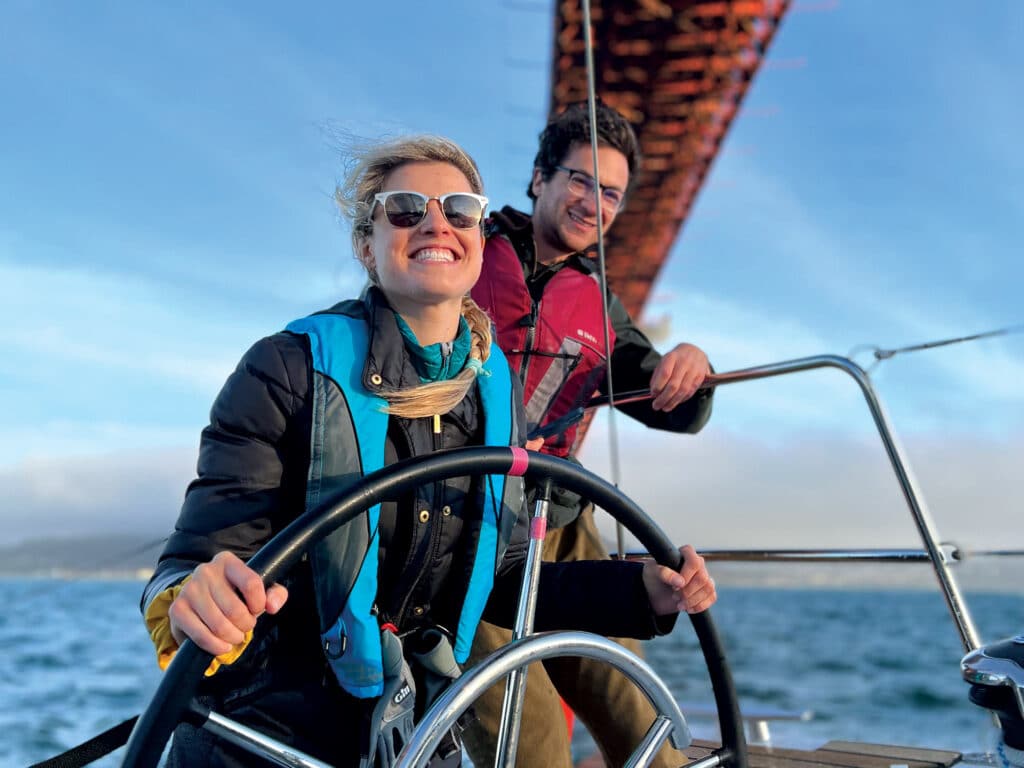
What do I need to charter a sailboat?
That’s one of the most common questions that prospective sailing-school students ask, says Jonathan Payne, executive director of the American Sailing Association.
“If someone wants to charter, they need to feel confident,” he says. “They should have confidence in their sailing skills, docking skills, and know how to troubleshoot an engine. They should have navigational skills to manage unfamiliar waters. And they should have minimal anxiety.”
Although some sailors may already have the chops needed to bareboat charter, many look to the ASA and US Sailing to gain the skills—and the paperwork—that charter companies around the world often require.
Basic Keelboat Sailing (ASA 101), Basic Coastal Cruising (ASA 103), and Bareboat Cruising (ASA 104) are the foundational courses for learning to sail and charter a sailboat. The ASA has over 400 schools around the world. Local and weekend classes are spread across six-week courses, while destination schools in Caribbean hotspots offer seven-day liveaboard training.
US Sailing, the national governing body for the sport of sailing, offers similar building-block tracks: Basic Keelboat, Basic Cruising and Bareboat Cruising.
“Our students are often people who want to explore the world under sail and visit destinations you can get to only by boat,” says Beth Oliver, vice president and director of sales and marketing at Offshore Sailing School, which offers one-week training courses in Florida and the British Virgin Islands where students earn US Sailing certifications for boats up to 50 feet.
While many US-based charter companies do not require a specific license and will look at training along with a sailing résumé, most charter firms in European waters require an International Certificate of Competence, or ICC. US sailors can apply for the similar International Proficiency Certificate once they have completed bareboat-cruising classes. Many international charter companies accept the IPC, but sailors should check ahead of time. Understanding the process, selecting a course, and choosing where to train can be confusing. Companies that offer classes can help narrow the options.
“When someone interested in a charter calls, we discuss options and steer them in the direction we think is right for them,” says Amanda Kurland, charter sales representative for Sunsail and The Moorings. These sister companies offer numerous choices. “The Moorings offers Royal Yachting Association courses in the Med and Offshore Sailing School courses in the BVI,” Kurland says. Sunsail has destination sailing schools in the United Kingdom, Croatia, Greece, Australia and Grenada. These are destination schools where a week of sail training is often part of a long-planned vacation.
Blue Water Sailing School, an ASA-certified company based in Fort Lauderdale, Florida, offers destination charters closer to home. All levels of classes are available in Florida, Rhode Island, the Virgin Islands and the Bahamas. The (relatively) close offerings might appeal to sailors who aren’t ready to commit to a week in Dubrovnik.
“We try to get people to the point where they are confident enough to take their family out for a daysail or, more advanced, maybe take a boat and live aboard for a week,” says Blue Water owner David Pyle.
West Coast Multihulls in San Diego operates a sailing school with training exclusively on multihulls. Students who complete ASA 101,103 and 104 can take ASA 114—the Cruising Catamaran Certification—a five-day liveaboard class offered around Catalina Island and in the Sea of Cortez.
For all types of sailors, once the foundational training and courses are complete, the world really is your oyster. US Sailing and the ASA offer auxiliary certifications on navigation and safety at sea, and advanced courses such as Offshore Passage Making. Barefoot Offshore Sailing School in St. Vincent and the Grenadines offered three trans-Atlantic courses in 2022 on board a Bali 4.1 catamaran. ASA and Sail Canada certifications were available on all three passages.
See the following pages for special charter education resources offering more information on sailing schools.

